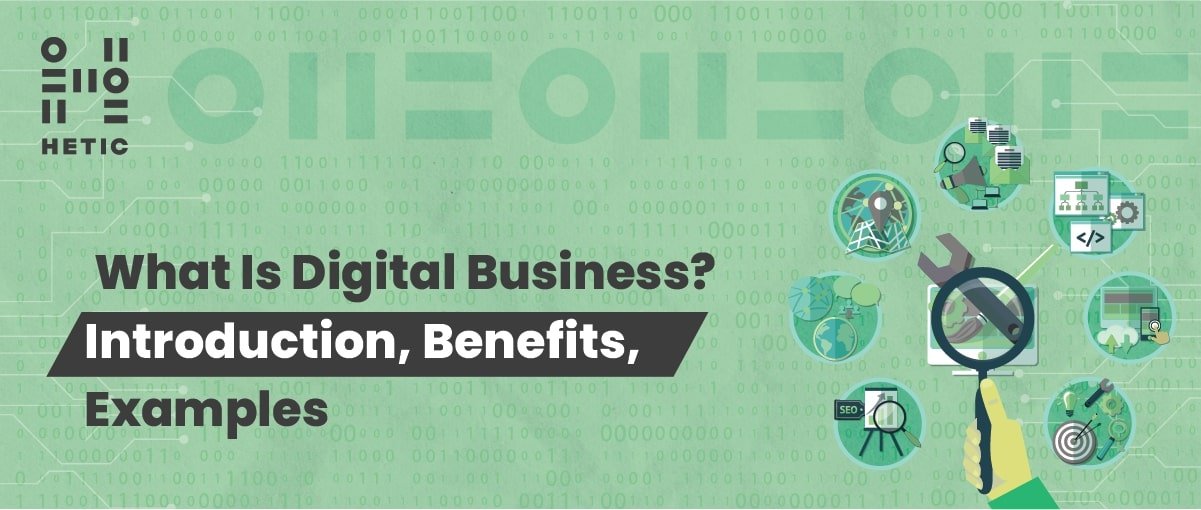Demystifying The Digital Age: A Guide To Understanding Digital Business Models

The digital revolution has fundamentally transformed the way we live, work, and conduct business. In this rapidly evolving landscape, traditional business models are being challenged, and new digital business models are emerging at an unprecedented pace. But what exactly is a digital business, and how do these models operate? This article delves into the world of digital business, exploring its core principles and various successful models shaping the digital age.
What is a Digital Business?
At its core, a digital business meaning leverages technology to create, deliver, and capture value. This goes beyond simply having an online presence or selling products through an e-commerce platform. Digital businesses are fundamentally different from traditional businesses in their approach to value creation, customer engagement, and overall operations.
Here are some key characteristics that define a digital business:
- Technology as the Foundation: Technology is the bedrock of a digital business. From cloud computing and big data analytics to digital marketing tools and social media platforms, technology empowers these businesses to operate efficiently, personalize customer experiences, and reach a global audience.
- Focus on Customer Experience: Digital businesses prioritize delivering exceptional customer experiences. They leverage technology to gather customer data, understand user behavior, and tailor offerings to meet individual needs and preferences.
- Data-Driven Decision Making: In the digital age, data is king. Digital businesses rely on data analytics to gain valuable insights into customer behavior, market trends, and competitor activity. This data is then used to inform strategic decision-making, optimize operations, and drive business growth.
- Scalability and Agility: Digital business models are inherently scalable, allowing businesses to expand their reach and operations quickly and efficiently. Furthermore, digital businesses are agile, able to adapt to changing market conditions and customer needs rapidly.

Understanding Different Digital Business Models:
The digital landscape offers a diverse range of business models, each with its unique approach to value creation and revenue generation. Let's explore some of the most prominent models:
- E-commerce: This model involves selling products and services online. E-commerce businesses can operate as online retailers, offering their own products directly to consumers, or act as marketplaces, facilitating transactions between sellers and buyers. Popular examples include Amazon, Flipkart, and Etsy.
- Subscription-Based Model: This model provides customers with ongoing access to products or services for a recurring fee. This could include software-as-a-service (SaaS) offerings like Netflix for entertainment or Dropbox for cloud storage, or access to exclusive content or curated product deliveries.
- Sharing Economy Model: The sharing economy model connects individuals who have underutilized resources with those who need them. Examples include companies like Uber and Airbnb, which connect riders with drivers and travelers with accommodation, respectively. These platforms facilitate transactions and take a commission on each booking.
- Freemium Model: This model offers a basic version of a product or service for free, with premium features available for a fee. This allows users to try the product before committing to a paid subscription. Freemium models are often used in software applications, where basic features are free, but advanced functionalities require paid subscriptions.
- Platform Model: Platform models connect different user groups and facilitate interactions between them. Social media platforms like Facebook and Instagram connect users and allow businesses to advertise to a targeted audience. Online marketplaces like eBay connect sellers with buyers, taking a commission on each transaction.
The Benefits and Challenges of Digital Business Models:
Digital business models offer several advantages, including:
- Increased Reach and Scalability: Digital businesses can reach a global audience with minimal investment compared to traditional brick-and-mortar businesses.
- Enhanced Customer Engagement: Digital tools enable real-time interaction and personalized experiences, fostering stronger customer relationships.
- Data-Driven Decision Making: Data analytics provide valuable insights to optimize operations and make informed strategic decisions.
- Operational Efficiency: Technology can automate tasks, streamline workflows, and improve overall business efficiency.
However, digital business models also present some challenges:
- High Dependence on Technology: Digital businesses rely heavily on technology infrastructure and are vulnerable to technical glitches and cyber security threats.
- Intense Competition: The digital landscape is highly competitive, requiring constant innovation and adaptation to stay ahead.
- Data Security Concerns: The collection and use of customer data raise privacy concerns that digital businesses must address.
- Evolving Regulatory Landscape: Government regulations around data privacy and online commerce are constantly evolving, requiring digital businesses to stay compliant.
Embrace Digital Transformation
In the digital age, businesses that fail to adapt risk being left behind. Embracing digital transformation is essential for staying competitive and relevant in today's market. This means leveraging digital technologies to streamline operations, improve customer experiences, and drive innovation. Whether it's implementing cloud-based solutions, adopting data analytics tools, or embracing e-commerce platforms, entrepreneurs must be willing to embrace change and invest in technologies that enable growth and scalability.
Focus on Customer Experience
In digital business, customer experience is paramount. With countless options available at their fingertips, today's consumers expect seamless, personalized experiences across all touchpoints. Entrepreneurs must prioritize understanding their target audience's needs, preferences, and pain points and tailor their products or services accordingly. By delivering exceptional customer experiences, businesses can build trust, foster loyalty, and differentiate themselves in a crowded marketplace.
Stay Agile and Adaptable
The digital landscape is constantly evolving, with new technologies, trends, and competitors emerging at a rapid pace. To succeed in digital business, entrepreneurs must stay agile and adaptable, willing to pivot their strategies and tactics in response to changing market conditions. This requires a willingness to experiment, take calculated risks, and iterate on ideas based on feedback and data. By remaining flexible and responsive, entrepreneurs can seize opportunities and stay ahead of the curve.

Harness the Power of Data
Data is the lifeblood of digital business. It provides insights into customer behavior, market trends, and business performance, enabling informed decision-making and strategic planning. Entrepreneurs should harness the power of data analytics to gain a deeper understanding of their target audience, optimize marketing campaigns, and identify areas for improvement. By leveraging data-driven insights, businesses can make smarter decisions and drive growth in the digital age.
Build a Strong Online Presence
In the digital business landscape, having a strong online presence is essential for attracting customers and driving engagement. Entrepreneurs should invest in building a user-friendly website, optimizing it for search engines, and establishing a presence on social media platforms relevant to their target audience. Additionally, leveraging content marketing, email marketing, and digital advertising can help businesses reach and engage with potential customers effectively.
Conclusion:
The digital age has ushered in a new era of business models, fundamentally changing how companies create value and operate. By understanding the core principles of digital business and exploring different models, individuals and organizations can leverage the power of technology to thrive in this ever-evolving landscape. The key to success lies in harnessing technology effectively, prioritizing customer experience, making data-
Article Comments
Articles Search
Sponsor
There are zero sub-categories in this parent category.
There are zero sub-categories in this parent category.
There are zero sub-categories in this parent category.
















